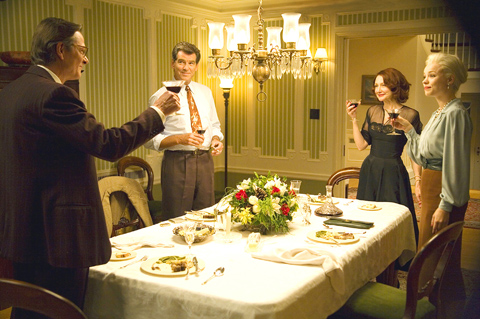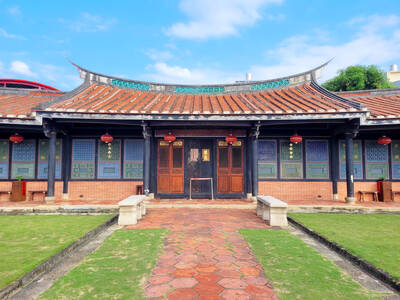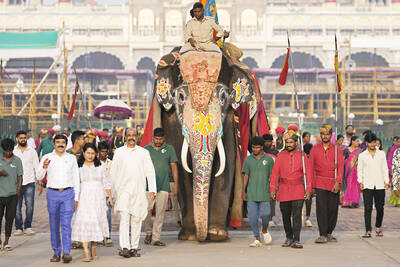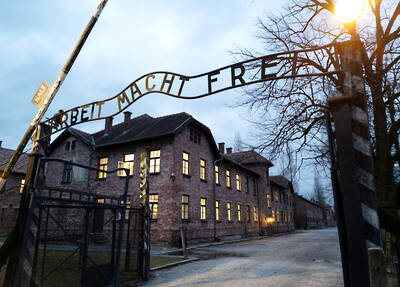Remember the time businessmen were expected to drink martinis at lunch, and the time they were expected not to? Ira Sachs’ Married Life begins with Harry taking Richard into his confidence at a martinis-and-cigarettes lunch that confirms the movie is set in 1949. Harry (Chris Cooper) is a buttoned-down, closed-in, respectable type. Richard (Pierce Brosnan) is more easygoing. You can tell by the way they smoke. Harry is painfully earnest as he tells his friend that he plans to leave his wife for a much younger woman. The younger woman truly and deeply loves him. All his wife wants is sex.
Why does Harry share this information? I think he wants understanding and forgiveness from a man he respects. He has arranged for the young woman to join them at lunch. Here she comes now. She is Kay (Rachel McAdams). She has the bottle-blond hair and the bright red lipstick, the Harlow look. But don’t get the wrong idea. She’s a sweet kid, and she really does love Harry. The movie has a voiceover narration by Richard, but we don’t need it to tell from the look in his eyes that Richard desires Kay, and that from the moment he sees her, he wants to take her away from the dutiful Harry.
How dutiful is Harry? So devoted to his wife that he can’t stand the thought of telling her he wants a divorce. He decides to take pity on her, spare her that pain, and murder her instead. Sort of a mercy killing. He’s serious about this. He knows how devoted his wife is to him, and how this news would shatter her, and he doubts if she could stand it.

PHOTO COURTESY OF FOX
This story, which crosses film noir with the look and feel of a Douglas Sirk film, balances between its crime element and its social commentary: Everything Harry does is within the terms of a circa-1950 middle-class suburban marriage, with what we have been taught of all of its horrors. Marriage is always bad in these dark movies. I personally think it was better than in 1950s comedies, but then that’s just me. We have the same problems but we smoke less and use more jargon. And no generation thinks its fashions look funny, although Gene Siskel used to amuse himself by watching people walking down the street and thinking to himself, “When they left home this morning, they thought they looked good in that.”
But enough. What about Harry’s wife? She is Pat, played by Patricia Clarkson, who is so expert at portraying paragons of patient domestic virtue: So trusting, oblivious or preoccupied that she never thinks to question Harry’s absences when he’s seeing Kay. Richard observes all of this in a low-key, factual way; it’s as if he’s telling us the story over martinis. He even addresses us directly at times.
Will Harry really try to kill his wife? Many men have killed their wives for less, shall we call them, considerate motives. Sachs and his cowriter, Oren Moverman, have based their screenplay on the pulp novel Five Roundabouts to Heaven by John Bingham, who, I learn from the critic Keith Uhlich, was a UK intelligence agent who was the original for John Le Carre’s character George Smiley. Smiley, however, would be the Richard character here, not the Harry. The story has been ported from the land of roundabouts to the land of four-way stops, all except for Richard, who is British and urbane, which with Harry possibly passes for trustworthy.
Pierce Brosnan is becoming a whole new actor in my eyes, after this film, The Matador, Evelyn and The Tailor of Panama. It’s a kiss of death to play James Bond, but at least it gives you a chance to reinvent yourself. Chris Cooper reinvents himself in every film; can this be the same actor from Adaptation? Here he seems so ... respectable. Rachel McAdams does a nice job of always seeming honest and sincere, even when she makes U-turns, but Patricia Clarkson, as always, has a few surprises behind that face that can be so bland, or scornful, or in between. Still housewives run deep.
There is so much passion in this story that it’s a wonder how damped down it is. Nobody shouts. And we discover that Harry is not the only person in the story who can surprise us. The lesson, I think, is that the French have the right idea, and adultery is no reason to destroy a perfectly functioning marriage. But is the movie about marriage, or sex, or murder, or the murder plot, or what? I’m not sure. It deals all those cards, and fate shuffles them. You may not like it if you insist on counting the deck after the game and coming up with 52. But if you get 51 and are amused by how the missing card was made to vanish, this may be a movie to your liking.

When 17-year-old Lin Shih (林石) crossed the Taiwan Strait in 1746 with a group of settlers, he could hardly have known the magnitude of wealth and influence his family would later amass on the island, or that one day tourists would be walking through the home of his descendants in central Taiwan. He might also have been surprised to see the family home located in Wufeng District (霧峰) of Taichung, as Lin initially settled further north in what is now Dali District (大里). However, after the Qing executed him for his alleged participation in the Lin Shuang-Wen Rebellion (林爽文事件), his grandsons were

A jumbo operation is moving 20 elephants across the breadth of India to the mammoth private zoo set up by the son of Asia’s richest man, adjoining a sprawling oil refinery. The elephants have been “freed from the exploitative logging industry,” according to the Vantara Animal Rescue Centre, run by Anant Ambani, son of the billionaire head of Reliance Industries Mukesh Ambani, a close ally of Prime Minister Narendra Modi. The sheer scale of the self-declared “world’s biggest wild animal rescue center” has raised eyebrows — including more than 50 bears, 160 tigers, 200 lions, 250 leopards and 900 crocodiles, according to

They were four years old, 15 or only seven months when they were sent to Auschwitz-Birkenau, Bergen-Belsen, Buchenwald and Ravensbruck. Some were born there. Somehow they survived, began their lives again and had children, grandchildren and even great grandchildren themselves. Now in the evening of their lives, some 40 survivors of the Nazi camps tell their story as the world marks the 80th anniversary of the liberation of Auschwitz-Birkenau, the most notorious of the death camps. In 15 countries, from Israel to Poland, Russia to Argentina, Canada to South Africa, they spoke of victory over absolute evil. Some spoke publicly for the first

I am kneeling quite awkwardly on a cushion in a yoga studio in London’s Shoreditch on an unseasonably chilly Wednesday and wondering when exactly will be the optimum time to rearrange my legs. I have an ice-cold mango and passion fruit kombucha beside me and an agonising case of pins and needles. The solution to pins and needles, I learned a few years ago, is to directly confront the agony: pull your legs out from underneath you, bend your toes up as high as they can reach, and yes, it will hurt far more initially, but then the pain subsides.